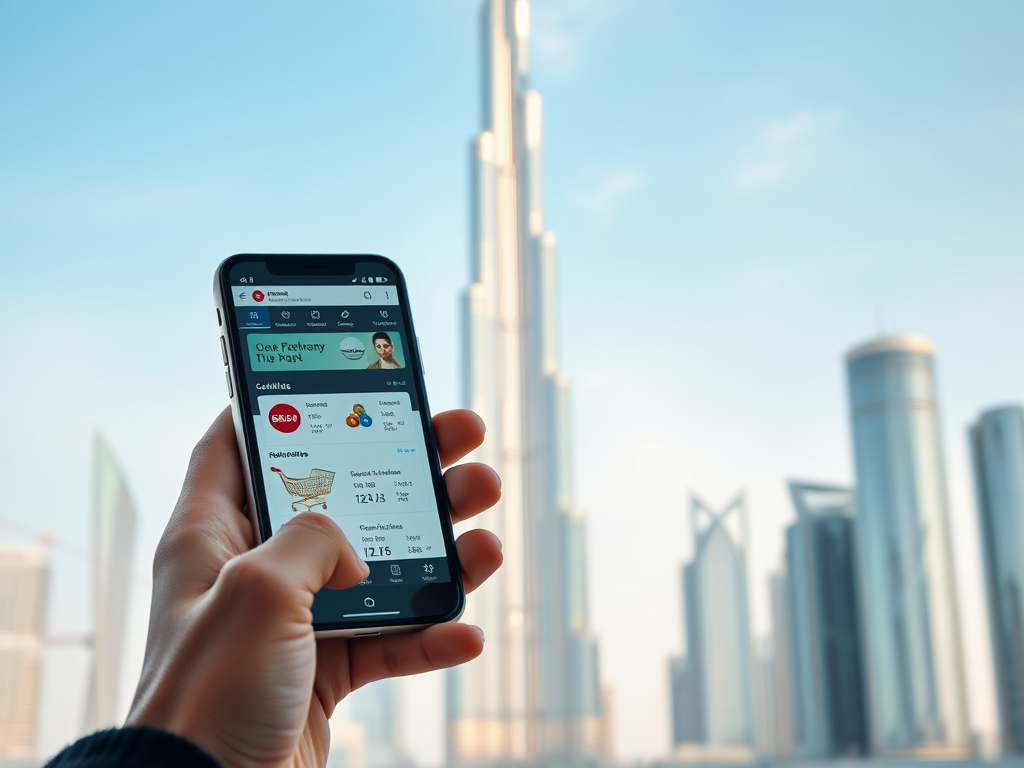How to Start a Personalized E-Commerce Platform in Dubai
Building a personalized e-commerce Dubai platform is an exciting venture in today’s digital age. Known for its innovation, luxury shopping experiences, and diverse market, Dubai is a prime location for launching an online store. The city’s robust infrastructure and tech-savvy population provide the perfect environment for a thriving e-commerce business.
With the right strategy, advanced technology, and a clear understanding of local market dynamics, anyone can create a successful personalized e-commerce site. This article will guide you through the essential steps to establish your platform, from identifying your niche and developing a business plan to launching your online store. It also offers helpful insights and a clear action plan to ensure your e-commerce business achieves sustainable success in Dubai’s dynamic market.
Understanding the Market Landscape

Before diving into the logistics of starting an e-commerce platform, it’s crucial to analyze the market landscape in Dubai. The city serves as a hub for a multitude of cultures, creating a unique consumer base with varying preferences. Here are some key points to consider:
- Research Consumer Behavior: Understanding what local consumers want is essential. Conduct surveys or use analytical tools to gather insights.
- Niche Selection: Choose a market niche that isn’t overly saturated but has a demand. This could be anything from handmade crafts to tech gadgets.
- Competitive Analysis: Look at existing e-commerce platforms, assessing their strengths and weaknesses to identify opportunities.
- Legal Requirements: Familiarize yourself with the legalities of e-commerce in Dubai, including licensing and regulations.
Establishing Your Business Model

Your business model will determine how you operate your platform, from product sourcing to marketing. Here are a few viable models to consider:
- Dropshipping: You sell products without holding inventory. Once a customer purchases, the product is shipped directly from the supplier.
- Subscription Services: Offer customers a subscription model for exclusive products or perks, providing steady revenue while enhancing customer loyalty.
- Marketplace Model: Create a platform where multiple vendors can sell their products, allowing for a broader selection without direct inventory management.
Selecting the right model is crucial, as it will shape your operational procedures, pricing strategies, and marketing efforts.
Designing Your E-Commerce Website
The design and functionality of your e-commerce website are pivotal in attracting and retaining customers. Prioritize user experience (UX) while designing your platform. Here’s how you can achieve this:
- Responsive Design: Ensure your site looks and functions well on all devices, including smartphones and tablets.
- Easy Navigation: Structure your site so users can easily find products. Use clear categories, filters, and a powerful search function.
- Personalization Features: Implement algorithms that suggest products based on user behavior and preferences, enhancing the shopping experience.
- Secure Payment Systems: Integrate robust payment solutions to build trust with customers, ensuring their transactions are safe.
Once your platform is live, you need a marketing strategy to attract visitors and convert them into buyers. Here are effective methods for promoting your e-commerce business:
- Search Engine Optimization (SEO): Optimize your site for search engines to improve visibility, using relevant keywords and quality content.
- Social Media Marketing: Leverage platforms like Instagram, Facebook, and TikTok to reach potential customers, engage them with compelling visuals and ads.
- Email Marketing: Build an email list to send personalized offers, product updates, and newsletters to keep your audience informed.
- Influencer Collaborations: Partner with local influencers to tap into their followers and broaden your reach authentically.
Conclusion
Launching a personalized e-commerce platform in Dubai requires thorough planning, an understanding of market trends, and a customer-centric approach. As the region continues to embrace digitalization, the potential for success in the e-commerce realm is immense. By focusing on effective market research, establishing a solid business model, creating an intuitive website, and implementing strategic marketing efforts, you can build a thriving online venture that stands out in this vibrant marketplace.
Frequently Asked Questions
1. What are the legal requirements for starting an e-commerce business in Dubai?
You need to obtain a trade license from the Department of Economic Development (DED) and register your business with the relevant free zone authority, depending on your business location.
2. How can I choose the right niche for my e-commerce platform?
Conduct market research to identify gaps in the market, analyze trends, and consider your passions and expertise to select a niche that aligns with demand.
3. Is it necessary to have a physical store in Dubai for my e-commerce business?
No, you can operate entirely online. However, having a physical presence can strengthen trust with customers and serve as a logistics hub.
4. How can I improve customer retention on my e-commerce platform?
Enhance customer retention through personalized email marketing, loyalty programs, excellent customer service, and by continually improving your product offerings based on feedback.
5. What payment methods should I offer on my e-commerce website?
It’s best to offer a variety of payment options, including credit/debit cards, digital wallets (like PayPal and Apple Pay), and local payment methods to cater to different customer preferences.


